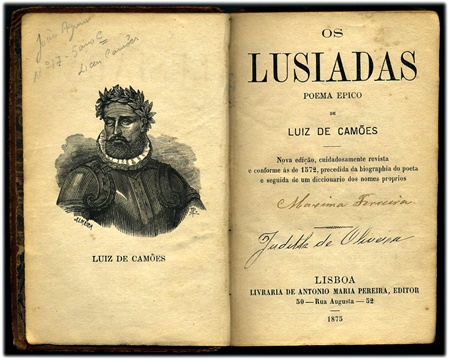ADVERTS
Luís Vaz de Camões was born in 1525 in Coimbra, Portugal, and holds the title of the greatest Portuguese poet of all time. As a young man he joined the Portuguese Crown Army.
In 1547 he faced his first challenge in the war against the Ceutas, fought in Morocco. During the battle, he is hit in the right eye and ends up with one eye. These struggles ended for him in 1552.
ADVERTS
Upon returning to Portugal, he began to live between the popular taverns of Lisbon and the sophisticated and luxurious parties of the nobility. The return on army missions took place in 1553, with an order to be fulfilled in the Indies, and in 1556, in China.
Camões's masterpiece, “The Lusíadas”, had begun to be written at that time. The work was launched in 1572, with the support of the monarch D. Sebastião.

Camões is the greatest Portuguese Renaissance poet. In “Os Lusíadas”, there is a union of epic and lyrical elements and highlights humanism and overseas expeditions, narrates moments in the history of Portugal, brings together Portuguese History and reveals the challenges of navigators.
ADVERTS
The work shows excerpts separating from the central theme, something new for the time. The episode that stands out most is the murder of Inês de Castro, in 1355, by the ministers of King D. Afonso IV of Burgundy, father of D. Pedro, her lover.
His poems are also full of love situations and existential problems of human beings. He was inspired and sought support in popular and medieval songs.
Camões draws attention to the geometric perfection of the work, practically entirely made up of sonnets and redondilhas. In terms of literature, in “Os Lusíadas” he would have found perfection and would have entered a place separated from the geniuses of humanity.
Luís Vaz de Camões died in Lisbon, Portugal, on June 10, 1580. Even with tremendous influence at Court, Camões died in poverty.
